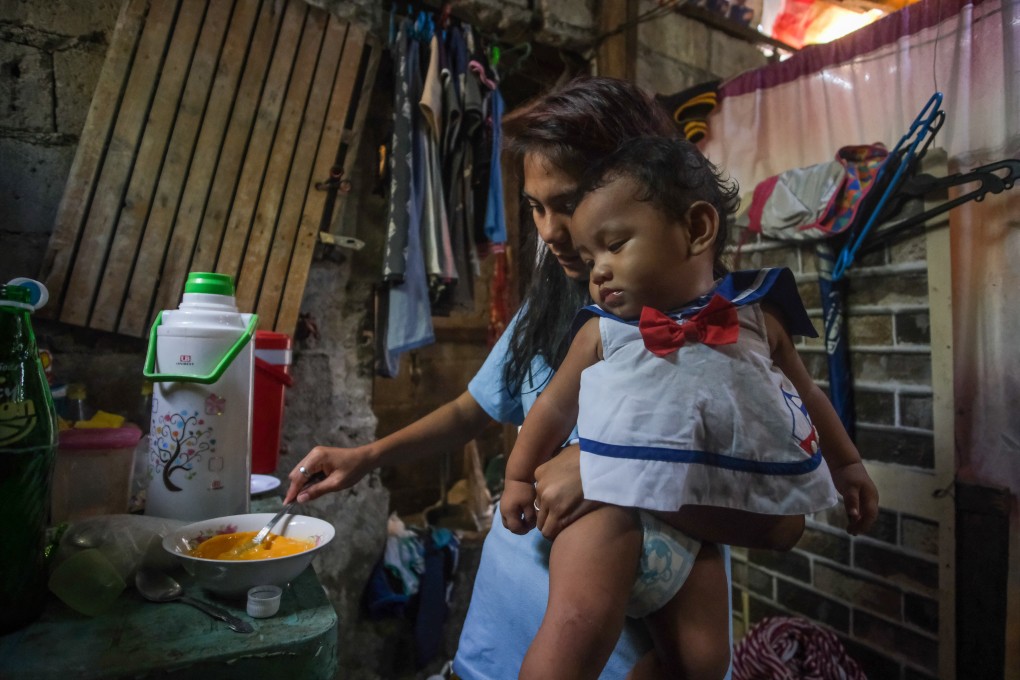As teen pregnancies in the Philippines soar, young mums struggle to cope with their ‘blessings from God’ amid the pandemic
- Every day, some 500 teenage girls give birth in the Philippines, where preventing teen pregnancies was made a ‘national priority’ by President Duterte last year
- A pandemic squeeze on already underfunded health services has caused hardship, but change – including raising the age of consent to 16 from 12 – is on its way

Erlyn, 18, stopped going to school after the death of her asthmatic brother in 2019. Her friend Daisy, now 16, lost her mother in 2017, the cause of death unclear as the poverty-stricken family had no cash for medical tests; they still blame witchcraft for their loss.
Devastated and needing money, Erlyn began working as a masseuse where she met a man in his early 30s who quickly became her husband, while Daisy left home at 15 to live with her boyfriend, now husband, the same age as her and also out of school.
Motherhood swiftly followed, with Erlyn giving birth to her son Hades in December 2020 and Daisy’s boy Reysy Vee born in October last year.

Erlyn and Daisy, who live not far from one another in an urban community in Quezon City, near Manila, are raising their firstborns during a pandemic, recovering from childbirth, dealing with breastfeeding and learning lullabies, all while weighing up whether they should – or can – return to their studies or find work.
If their choices were limited already through poverty, they are even more limited now. Erlyn, for one, says she does not want to give birth again. And Daisy, whose son made a rapid appearance in the early hours in the back of a tricycle, is haunted by the painful experience and by the knowledge that her mother-in-law, a poorly-paid snack vendor, is in debt to several people.
Despite knowing the responsibilities involved in becoming a mother, Daisy was determined to carry her son to term. “Aren’t babies a blessing from God? That’s why I kept him,” she said, adding that she and her husband often argued when he could not afford to buy her the food she craved during pregnancy.